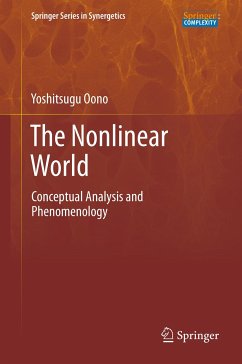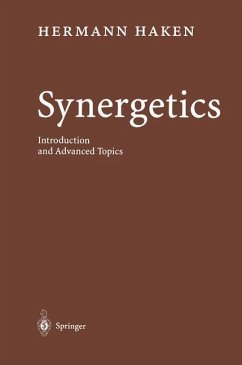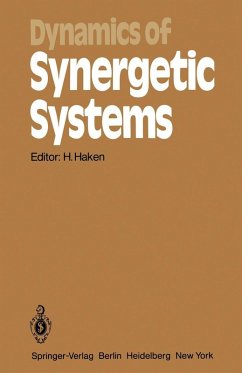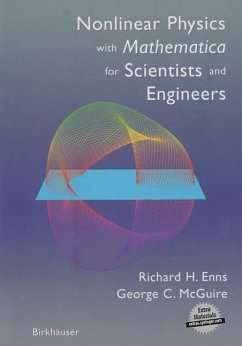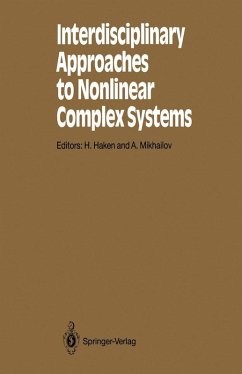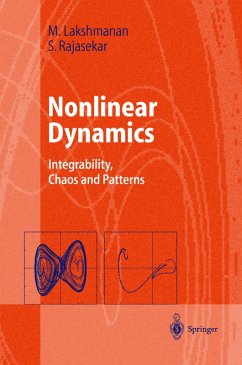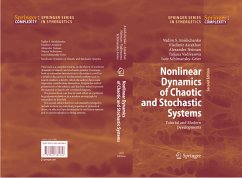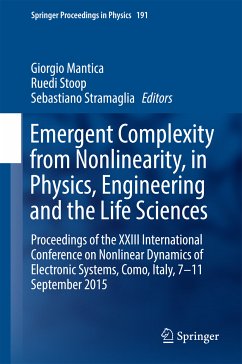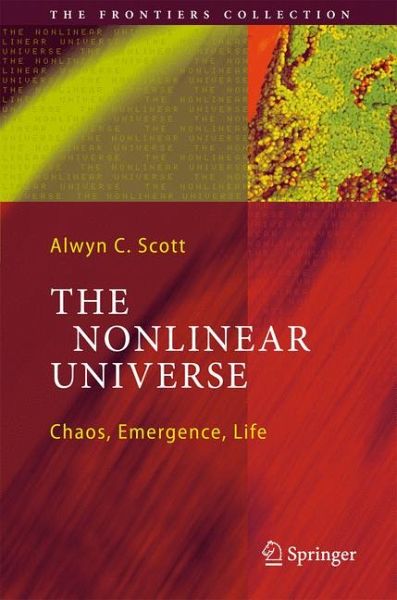
The Nonlinear Universe (eBook, PDF)
Chaos, Emergence, Life
Versandkostenfrei!
Sofort per Download lieferbar
56,95 €
inkl. MwSt.
Weitere Ausgaben:

PAYBACK Punkte
28 °P sammeln!
Written in Alwyn Scott's inimitable style, one that readers will find both lucid and accessible, this masterwork elucidates the explosion of activity in nonlinear science that began in the 1970s and 1980s and continues today. The book explains the wide-ranging implications of nonlinear phenomena for future developments in many areas of modern science, including mathematics, physics, engineering, chemistry, biology, and neuroscience. Arguably as important as quantum theory, modern nonlinear science - and an appreciation of its implications - is essential for understanding scientific development...
Written in Alwyn Scott's inimitable style, one that readers will find both lucid and accessible, this masterwork elucidates the explosion of activity in nonlinear science that began in the 1970s and 1980s and continues today. The book explains the wide-ranging implications of nonlinear phenomena for future developments in many areas of modern science, including mathematics, physics, engineering, chemistry, biology, and neuroscience. Arguably as important as quantum theory, modern nonlinear science - and an appreciation of its implications - is essential for understanding scientific developments of the twenty-first century.
Dieser Download kann aus rechtlichen Gründen nur mit Rechnungsadresse in A, B, BG, CY, CZ, D, DK, EW, E, FIN, F, GR, HR, H, IRL, I, LT, L, LR, M, NL, PL, P, R, S, SLO, SK ausgeliefert werden.



